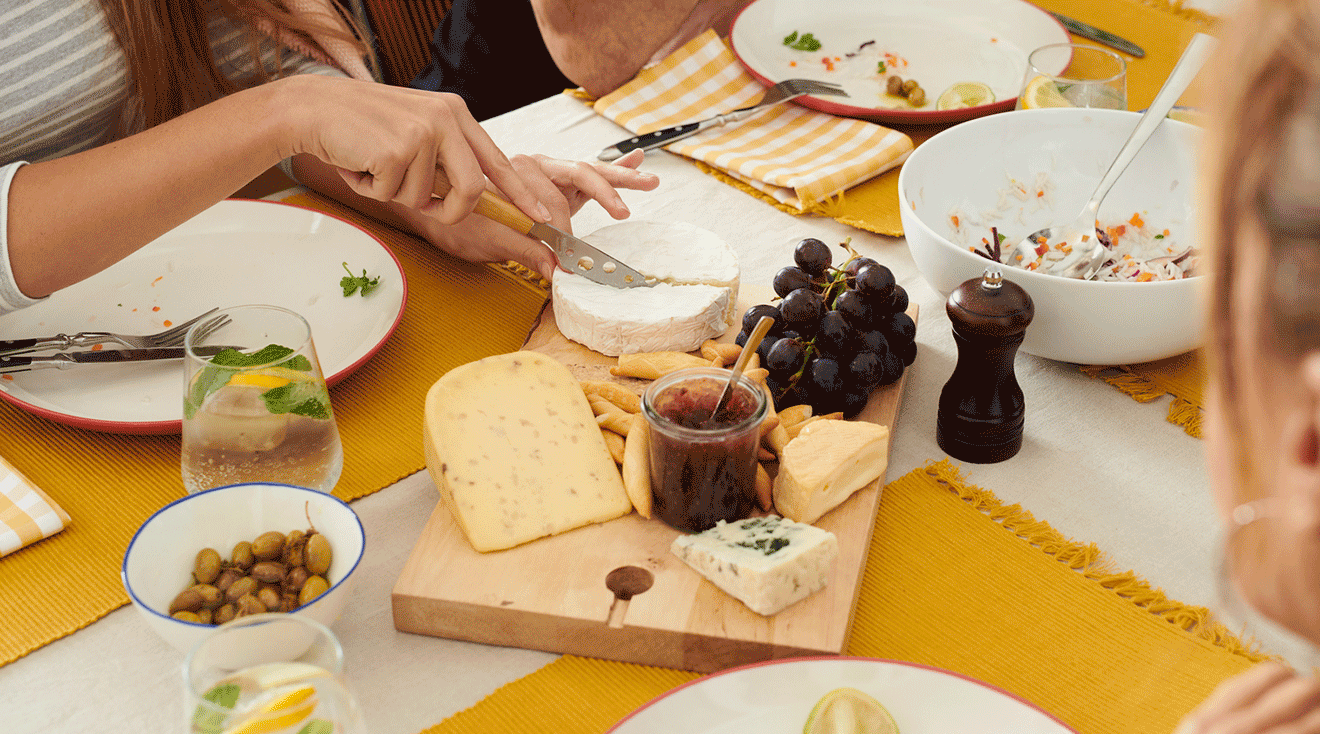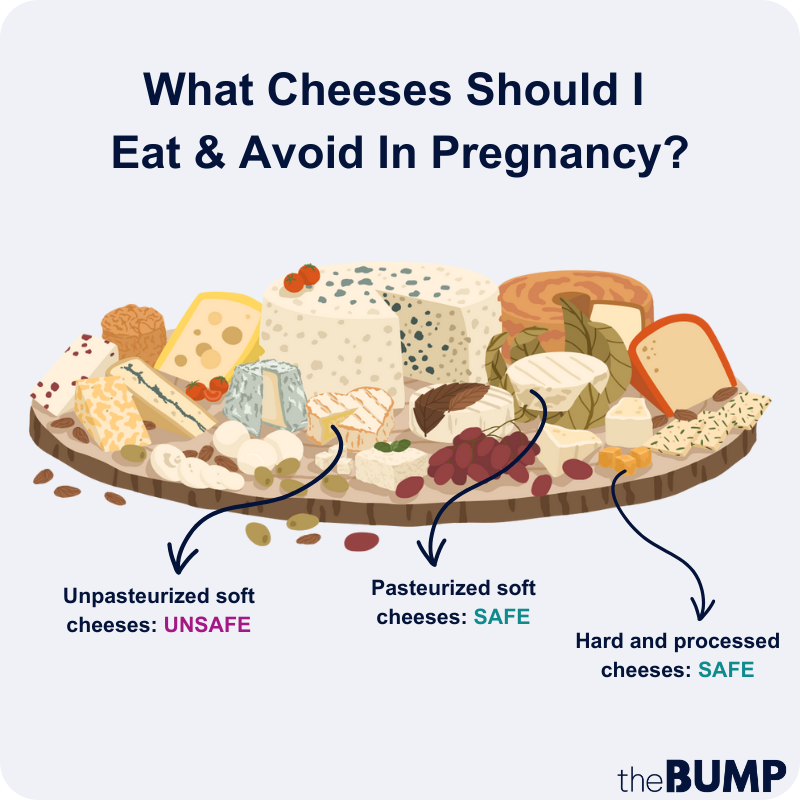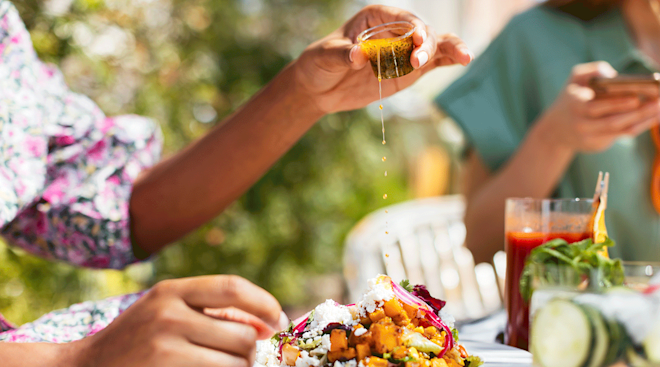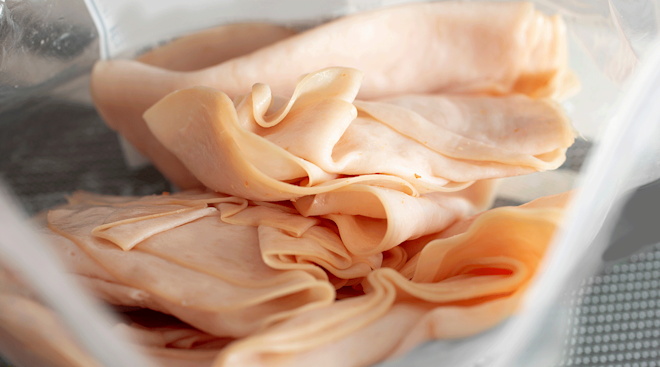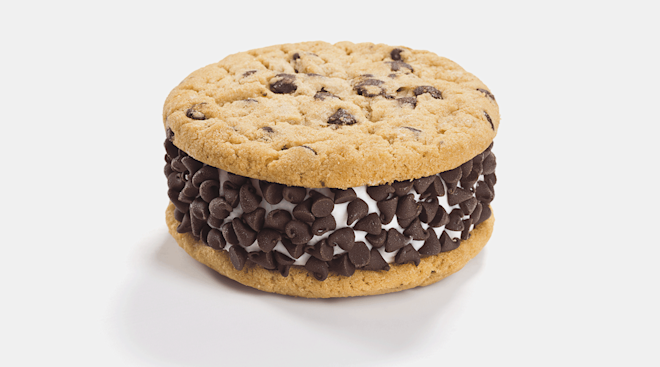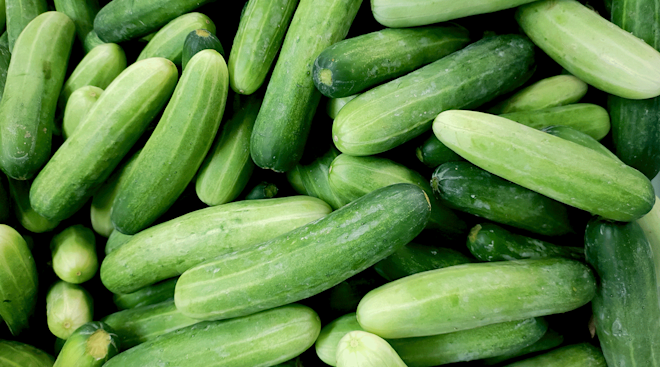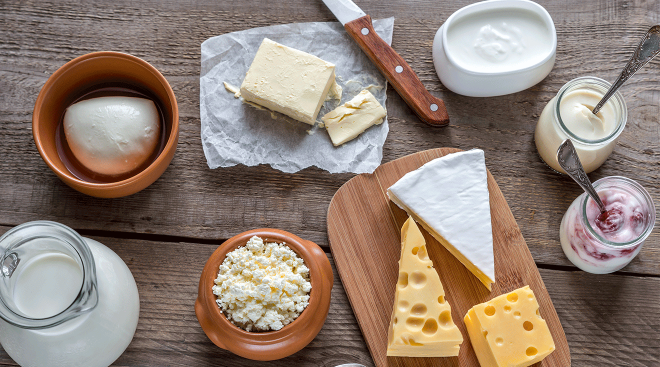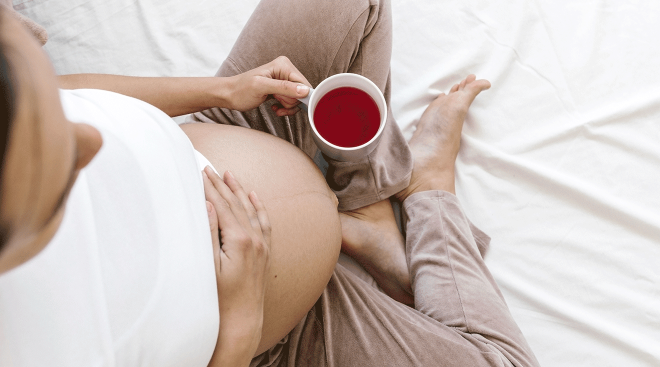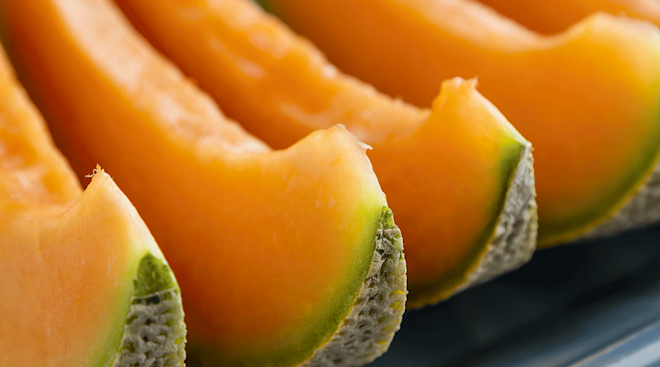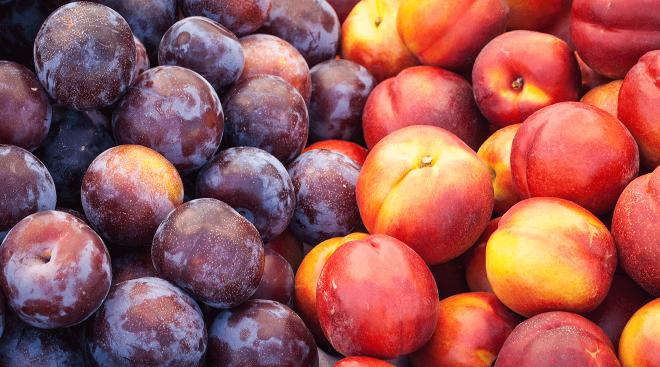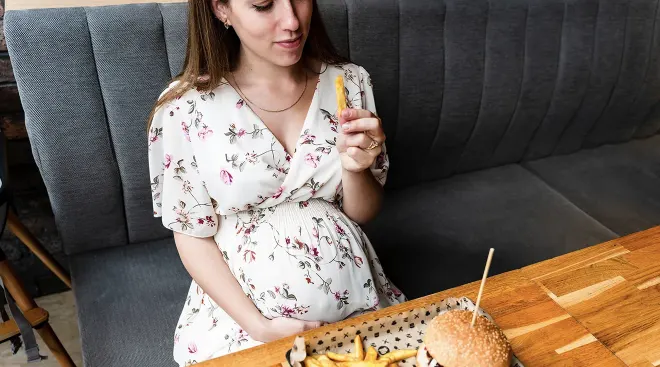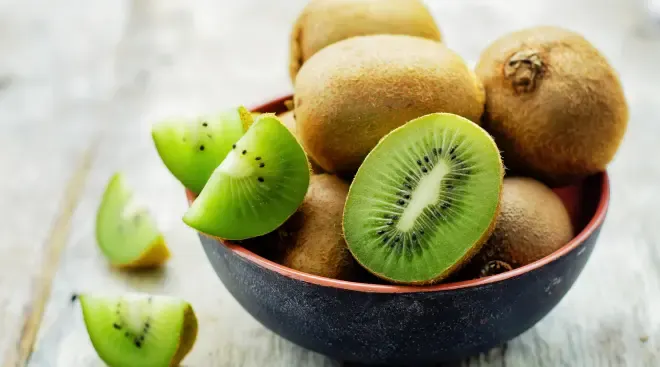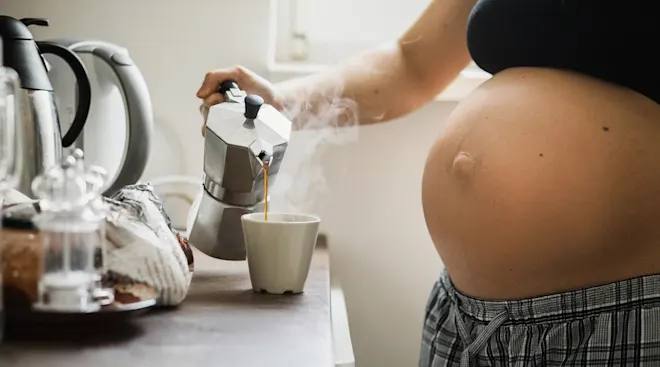The Ultimate Guide to Soft Cheeses in Pregnancy
Pregnant people are constantly inundated with contradictory messages about what foods they can and can’t eat. And the wide world of cheeses—and soft cheeses, in particular—can be especially confusing. But have no fear, turophiles: Here’s your complete guide to cheeses safe to enjoy throughout your nine+ month journey, plus a list of cheeses to avoid in pregnancy.
Have a hankering for cream cheese or goat cheese in pregnancy? Rest assured that you can satisfy your craving. (Hurray!) There’s just one caveat when it comes to any cheese (or other dairy item you eat or drink)—it has to be made with pasteurized milk, according to the Centers for Disease Control and Prevention (CDC), so make sure to check the label.
All those warnings that you may have seen about soft cheeses are often “based on the seriousness that soft cheese can cause a listeria infection,” says Jessica Monroe, PhD, RD, LD, a registered dietitian who specializes in fertility, pregnancy and postpartum, and the owner of Fresh Nutrition & Wellness. “But what usually isn’t clarified in the rumor is that most soft cheese in the US is made with pasteurized milk, which reduces the risk of acquiring a listeria infection. The warning should be, ‘Don’t eat cheese made with unpasteurized milk,’ not avoid soft cheeses altogether.”
Rakhee Patel, MD, an ob-gyn in New Jersey, agrees that we shouldn’t vilify eating cheese in pregnancy. “Soft cheeses can offer nutritional benefits,” she says. “They’re a good source of calcium, which is essential for both the mother and baby’s bone development, as well as protein and other essential nutrients.”
Monroe adds that soft cheese can help make other foods more palatable, “especially during the early stages of pregnancy when nausea and food aversions can be common,” she says.
You may be wondering: Can you eat feta cheese while pregnant? What about cream cheese, goat cheese, mozzarella or ricotta? As long as the label clearly states that the product was made using pasteurized milk, these and many other types of cheeses are safe choices.
According to the US Food and Drug Administration (FDA), low-risk cheese choices in pregnancy include:
- Hard cheeses, such as cheddar
- Extra-hard grating cheeses, such as Parmesan
- Processed cheeses
- Soft cheeses made from pasteurized milk, such as Brie, Camembert, blue-veined cheeses
- Mexican-style cheeses made from pasteurized milk, including queso fresco, Panela, Asadero and queso blanco
- Cream, cottage and ricotta cheese made from pasteurized milk
Again, when shopping for soft cheese in pregnancy, look at the label and ingredients to make sure that it’s labeled “pasteurized” or “made with pasteurized milk.” Pasteurization is the process by which milk is heated to a particular temperature and then quickly cooled. When done properly and in sterile conditions, it kills bacteria and other pathogens.
As far as cheese to avoid during pregnancy, immediately rule out anything raw or unpasteurized. Monroe adds that blue cheese and queso fresco are often of concern. “Some types and brands are specifically made with unpasteurized milk—blue cheese, for example: Roquefort and gorgonzola are usually made with unpasteurized milk. When in doubt, always check the label.”
According to the FDA, high-risk cheese choices in pregnancy include:
- Soft cheeses made from unpasteurized milk, such as Brie, Camembert, blue-veined cheeses
- Mexican-style cheeses made from unpasteurized milk, including queso fresco, Panela, Asadero and queso blanco
Consuming unpasteurized queso fresco and cotija cheese in pregnancy are of particular concern since a disproportionate number of cheese-based listeria outbreaks can be traced back to them. According to the CDC, this ends up particularly impacting Latinx pregnant individuals, who are at 24 times higher risk for listeriosis, the infection that results from the listeria bacteria.
While eating local is great, FoodSafety.gov urges pregnant people to be especially mindful of soft cheese from farmer’s markets, roadside stands and other local sources since you may need to seek additional information to confirm that the products were pasteurized. And don’t hesitate to ask your grocery store clerk if you’re unsure whether a product is pasteurized.
The CDC warns that unpasteurized cheese can carry a rare but deadly germ called listeria, and pregnant people are 10 times more likely than other people to get a listeria infection. “This infection can lead to premature delivery, miscarriage, stillbirth or severe illness in newborns,” notes Patel.
According to the CDC, a 2021 listeria outbreak that was traced back to queso fresco resulted in 12 hospitalizations, one death, two pregnancy losses and one premature birth. Soft cheeses from delis have also been linked to listeria, as per the CDC.
But while it’s important to stay safe, if there’s one thing pregnant people don’t need more of it’s anxiety. Rest assured that most commercially sold cheese and other dairy products sold in the US are pasteurized, and therefore safe to eat while you’re pregnant—so as long as you do a quick label scan to confirm, you’ll be okay.
“There’s often misinformation and confusion about eating soft cheese during pregnancy,” says Patel. “Some people may believe all soft cheeses are unsafe, while others might not be aware of the risks associated with those made from unpasteurized milk. It’s crucial to read labels and ensure any cheese consumed is made from pasteurized milk.”
Please note: The Bump and the materials and information it contains are not intended to, and do not constitute, medical or other health advice or diagnosis and should not be used as such. You should always consult with a qualified physician or health professional about your specific circumstances.
Plus, more from The Bump:
Jessica Monroe, PhD, RD, LD, is a registered dietitian who specializes in fertility, pregnancy and postpartum, and the owner of Fresh Nutrition & Wellness.
Rakhee Patel, MD, is an ob-gyn in New Jersey. She earned her medical degree at St. George’s University in Grenada.
US Centers for Disease Control and Prevention, Check the Cheese, Avoid Listeria
US Food and Drug Administration, The Dangers of Raw Milk: Unpasteurized Milk Can Pose a Serious Health Risk, November 2018
International Dairy Foods Association, Pasteurization
US Centers for Disease Control and Prevention, Pregnant Women and Newborns, October 2022
FoodSafety.gov, People at Risk: Pregnant Women
US Centers for Disease Control and Prevention, Listeria Outbreak Linked to Queso Fresco Made by El Abuelito Cheese Inc., May 2021
US Centers for Disease Control and Prevention, Listeria Outbreak Linked to Deli Meat and Cheese, March 2023
Navigate forward to interact with the calendar and select a date. Press the question mark key to get the keyboard shortcuts for changing dates.
































